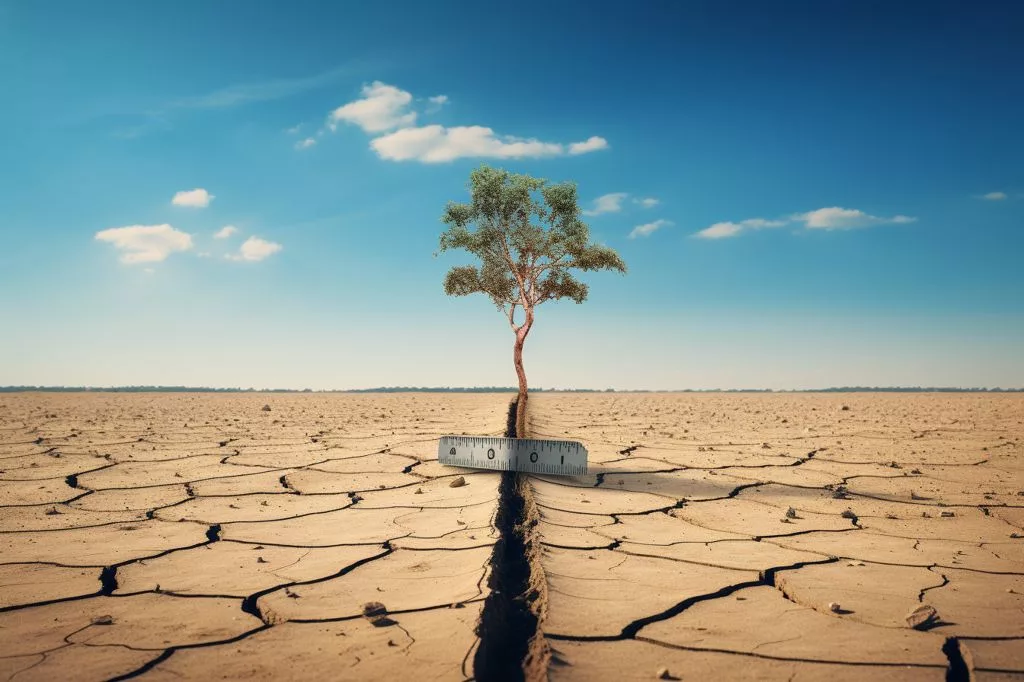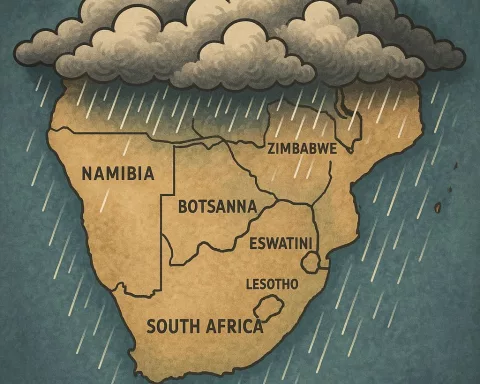South Africa has passed its first-ever climate change legislation, aligning with international agreements and setting sectoral emission targets. The legislation requires every level of government to integrate their policies and strategies to address climate risks and establishes the Presidential Climate Commission to promote collaboration among stakeholders. The bill embodies the country’s ambition towards sustainable industrialization and inclusive collaboration, positioning itself as a frontrunner in the quest for a sustainable future.
What is South Africa’s Climate Change Bill?
South Africa’s Climate Change Bill is the country’s first-ever legislation aimed at tackling climate change. The bill aligns with international agreements, such as the United Nations Framework Convention on Climate Change and the Paris Agreement, and sets sectoral emission targets. It also requires every level of government to integrate their strategies and policies to address climate risks and establishes the Presidential Climate Commission to promote collaboration among stakeholders. The bill embodies South Africa’s ambition towards sustainable industrialization and inclusive collaboration.
A Bold Move Towards Climate Resilience
Confronted with the undeniable reality of climate change, South Africa has recently taken a major step towards tackling this global challenge. The country’s National Assembly has enacted its first-ever climate change legislation, overcoming opposition from the Economic Freedom Fighters (EFF) and the African Christian Democratic Party (ACDP). In a historic event, Environmental Affairs Minister Barbara Creecy presented the case for the Climate Change Bill to parliamentarians on a recent Tuesday.
Minister Creecy highlighted the urgent necessity of the bill in light of the International Panel on Climate Change’s Sixth Report, which cautions about a dangerous 1.5-degree Celsius temperature increase since pre-industrial times. This pressing situation calls for swift carbon emission reductions and heightened resilience against the effects of climate change. As Creecy aptly noted, “We have to adapt and build resilience to the impacts that will occur, even in a 1.5-degree world.”
South Africa’s Climate Change Bill aims not only to address global climate concerns but also to fulfill the country’s commitment to international agreements. As a signatory of the United Nations Framework Convention on Climate Change (UNFCCC) and the Paris Agreement, the bill strives to align South Africa’s initiatives with these global endeavors. This harmonization entails setting sectoral emission targets and implementing a comprehensive monitoring and public reporting system.
Implementing Holistic Strategies and Establishing the Presidential Climate Commission
The legislation further requires that every level of government—national, provincial, and local—must integrate their strategies and policies to tackle climate risks. This all-encompassing approach acknowledges the financial limitations faced by municipalities and offers mechanisms for national government support. The bill also stresses the importance of early-warning systems, utilizing existing technologies from the Department of Forestry, Fisheries and the Environment and the South African Weather Service (SAWS) to manage natural disaster risks.
Expanding beyond government entities, the Climate Change Bill also aims to create the Presidential Climate Commission. This statutory body will engage communities, organized labor, businesses, and civil society in a united effort to address climate challenges head-on. Minister Creecy emphasized the significance of international solidarity, alluding to the Nairobi Declaration on Climate Change and President Ramaphosa’s appeal for financial assistance from developed countries to strengthen climate action in developing nations.
A Vision of Sustainable Industrialization and Inclusive Collaboration
South Africa’s Climate Change Bill embodies the country’s ambition to capitalize on its renewable energy resources and vital minerals, positioning itself as a frontrunner in sustainable industrialization. The legislation acknowledges the combined efforts of the government and civil society, indicating that this bill represents a crucial leap towards a more sustainable and inclusive future for both people and the planet.
The Presidential Climate Commission will function as an essential platform for diverse stakeholders to participate in meaningful dialogue and joint action. By promoting collaboration among communities, organized labor, businesses, and civil society, the Commission seeks to devise innovative solutions to the intricate, multi-layered problem of climate change. This inclusive strategy demonstrates South Africa’s dedication to ensuring no one is left behind in the quest for a sustainable future.
In summary, South Africa’s inaugural Climate Change Bill signals a significant landmark in the country’s path towards a more sustainable and resilient future. By aligning with international accords, fostering cooperation among stakeholders, and leveraging existing resources and technology, South Africa is taking ambitious steps to confront climate change and its far-reaching repercussions. At a critical turning point for the world, South Africa’s Climate Change Bill serves as an inspiring example of proactive, comprehensive legislation that recognizes the urgent need for change and lays the groundwork for a more sustainable, inclusive future.
1. What is South Africa’s Climate Change Bill?
South Africa’s Climate Change Bill is the country’s first-ever legislation aimed at tackling climate change. The bill aligns with international agreements, such as the United Nations Framework Convention on Climate Change, and sets sectoral emission targets.
2. What does the Climate Change Bill require from every level of government?
The Climate Change Bill requires every level of government to integrate their strategies and policies to tackle climate risks.
3. What is the significance of the Presidential Climate Commission?
The Presidential Climate Commission will engage communities, organized labor, businesses, and civil society in a united effort to address climate challenges.
4. Why is South Africa’s Climate Change Bill important?
South Africa’s Climate Change Bill is important because it aligns with international accords, fosters cooperation among stakeholders, and leverages existing resources and technology.
5. What is the goal of South Africa’s Climate Change Bill?
The goal of South Africa’s Climate Change Bill is to position itself as a frontrunner in sustainable industrialization while fulfilling the country’s commitment to international agreements.
6. What does the Climate Change Bill aim to achieve?
The Climate Change Bill aims to set sectoral emission targets and implement a comprehensive monitoring and public reporting system.
7. What challenges does the Climate Change Bill address?
The Climate Change Bill addresses financial limitations faced by municipalities and the need for early-warning systems to manage natural disaster risks.
8. What does South Africa’s Climate Change Bill represent?
South Africa’s Climate Change Bill represents a crucial leap towards a more sustainable and inclusive future for both people and the planet.












